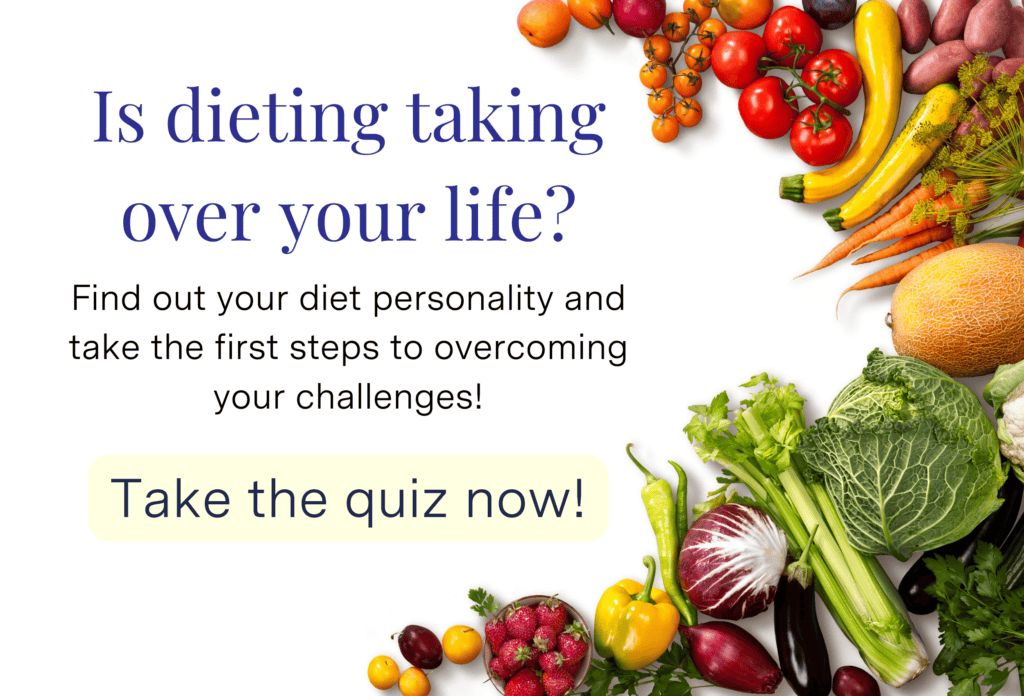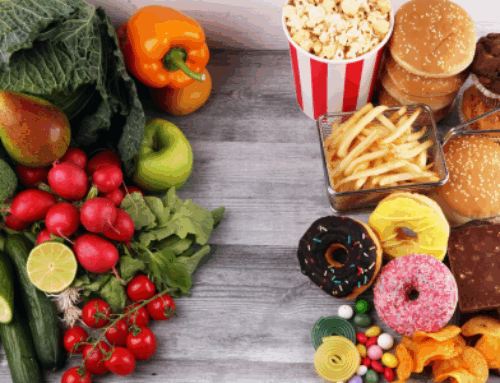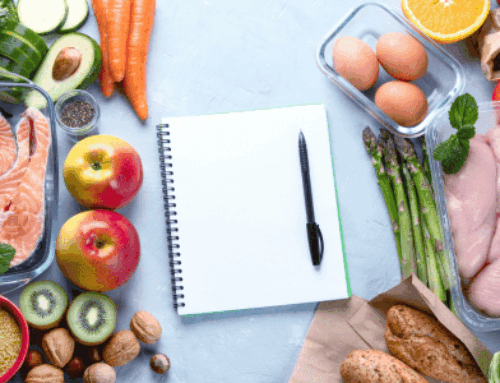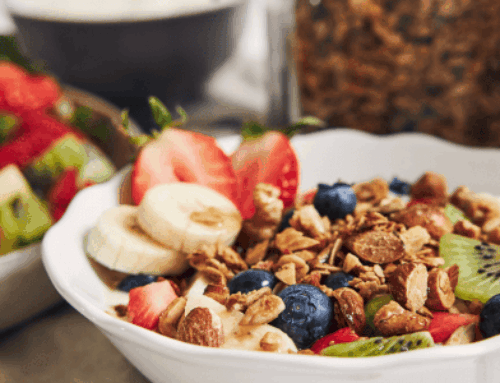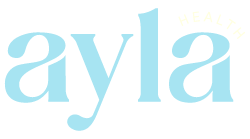
When it comes to food, you’re paralysed by the fear that you’re making the wrong choice.
So you don’t make any choice. You keep doing what you’ve been doing for ages and you don’t really see a way out. Even the thought of changing your eating patterns makes you feel anxious and tense.
Many people feel this way about food and at all different ends of the body weight spectrum. Whether they are trying to lose weight and subsequently stuck in a dieting cycle, or whether they want to address a health problem and don’t know where to start.
If food anxiety is a hurdle to building a positive relationship with food or your body, here are some strategies to reduce the stress and find peace.
1. Stop reading!
Knowledge is power, right? This is usually the case. The more you understand, the better you’re able to make an informed choice.
The tricky thing with food and nutrition is the sheer volume of information, particularly inaccurate information, that is so freely available. Every man and his dog has an opinion on food and the ‘right way’ to eat healthy. ‘You should do an alkalising diet.’ ‘You should stick to a whole foods diet’. ‘You should use protein shakes’. ‘You should run away from society and form a commune which subsists of only what is grown in your garden’….. Gah!
Here at Ayla Health and our sister brand The Healthy Eating Clinic, we often discuss how confusing the online nutrition information is, and we all have university degrees in nutrition! It’s an absolute mind field.
Part of the problem is that a lot of nutrition information and food science reporting gets over simplified and diluted, to create punchy, click-bait style news. Articles like ‘give up dairy products to beat cancer’ or ’20 incredible things that happen when adding warm lemon water to your morning routine’. I’m not kidding, these are real online article titles. These sorts of articles only provide you with small snippets of research, which are often highly exaggerated and almost always cherry picked. They conveniently leave out the science that doesn’t support their claims. The truth of the information is always more complex, and is highly dependent on the individual.
So, while getting yourself properly informed about nutrition is a great way to feel better about food choices, the mass of conflicting information out there can just leave you more confused. It can lead you down a rabbit hole of things you ‘should’ or ‘shouldn’t’ do.
One of the single best strategies I have found to reduce anxiety around food is not to think about it so much!
Try to:
- Stop reading health magazines and web articles.
- Stop reading the ingredients list and the nutrition panel on food.
- Find another area of interest to invest your energy.
- Switch off your TV when there is a news story or documentary on food or nutrition.
- Find a good novel and distract yourself from the worries about food.
If understanding nutrition and staying informed is important to you, then we highly recommend our online program ‘Nourish Your Body’. We teach evidence-based nutrition, without the food fear and judgement and in a way that helps you develop long term habits.
2. Lower your expectations.
One of my favourite quotes is ‘simple things become complicated when we expect too much’. And it’s so relevant to food and nutrition.
Food is meant to fuel our body, give us nutrients to help fight off infection and be enjoyable. That’s it. It seems simple, and it can be.
We over complicate things when we expect food to make us feel incredible, or to perfectly reach calorie goals or to get ‘x’ micrograms and ‘y’ nutrients. Nutrition is not an exact science and the way we eat is not exact either.
I find the best way to feel comfortable with food choices, without building unrealistic expectations of myself is to choose one or two things to focus on at a time. Aim for these fundamentals on most days and let the other things fall by the wayside. As you start to build habits you can move onto other things and let the small changes add up!
That’s how we help you build healthy eating habits, by breaking behaviour down into one habit at a time!
You could try (remember just pick one):
- Drinking 2 bottles of water a day.
- Eating 2 pieces of fruit each day.
- Filling half your plate with vegetables at meal times.
- Eating your food slowly and enjoying each bite.
- Packing lunch and snacks for work.
- Going for a walk each day.
- Going to bed earlier or having a routine at bedtime.
3. Focus on the positive.
We often don’t realise it, but we can train our brains to think in particular patterns, and those patterns are often negative. We train ourselves to look back on the day and replay the ways that we’ve stuffed up or not done the right thing. “I shouldn’t have had that chocolate” or “I looked fat in that T-shirt” or “yeah I might have had 2 litres of water but I still ate that cake. I’ve failed.”
This process of focusing on the negative can make you feel like you’re not getting anywhere. If all you can look back and see is ‘bad’, then it’s hard to feel like you’re making any progress. And therein lie the rub!
You may be making progress but your brain is not letting you see it. It’s holding on to the negative. So, you have to train yourself to see the positive progress you are making, even if it’s tiny. This can leave you feeling better about food, better about yourself and can reduce a lot of the stress and anxiety that goes along with food.
A positive journal is one of my favourite ways to start training your brain towards the positive. I have used it on many occasions when I feel like stress and anxiety are getting the better of me.
4. Positive Journal
Write down three positive things at the beginning or end of each day:
1. Something good about the day:
What happened that was positive (or at least not bad)?
Examples to help you:
- I had a safe drive in to work.
- I got to take a break/time for myself.
- I completed that nagging task.
- I had a positive conversation with someone.
- I didn’t get pooped on by a bird.
2. Something good about your food choice:
What helpful nutrients did you get out of a particular meal?
Which foods did you enjoy?
What choices was I happy about?
Examples to help you:
- I packed a lunch rather than buying it.
- I listened to my body about when I was full.
- I really enjoyed that muffin at morning tea.
- I had capsicum in my salad at dinner which is really high in vitamin C.
3. Something positive about my body?
Think about a part of your body and what life would be like to live without it.
Examples to help you:
- Your arms – what would life be like without arms? Or you eyes? Or your lungs?
- My tummy may not look how I want it to look, but it’s still keeping my organs in place and working.
- I don’t have to think about getting dialysis for my kidneys or have a colostomy bag, which is what some people need to manage their lives.
When we start to recognise all the things that our body DOES rather than what it looks like, we can start to appreciate it a lot more. This can help to put things in perspective!
The bottom line:
Anxiety can be an overwhelming sensation, and constant worry about food is a common experience for many people.
Food anxiety can often be the result of overestimating the impact of food on our body. No one food is going to cause any dramatic change to your life or to your body. You are okay just as you are in this moment, and eating or not eating a particular food won’t change that.
Our greatest weapon in managing food anxiety is to put our thoughts into perspective and these tools can help, as can speaking to a qualified nutrition professional.
If you’d like further help with managing food anxiety, you can book a no obligation, free strategy session with our team to find out how we can help!

